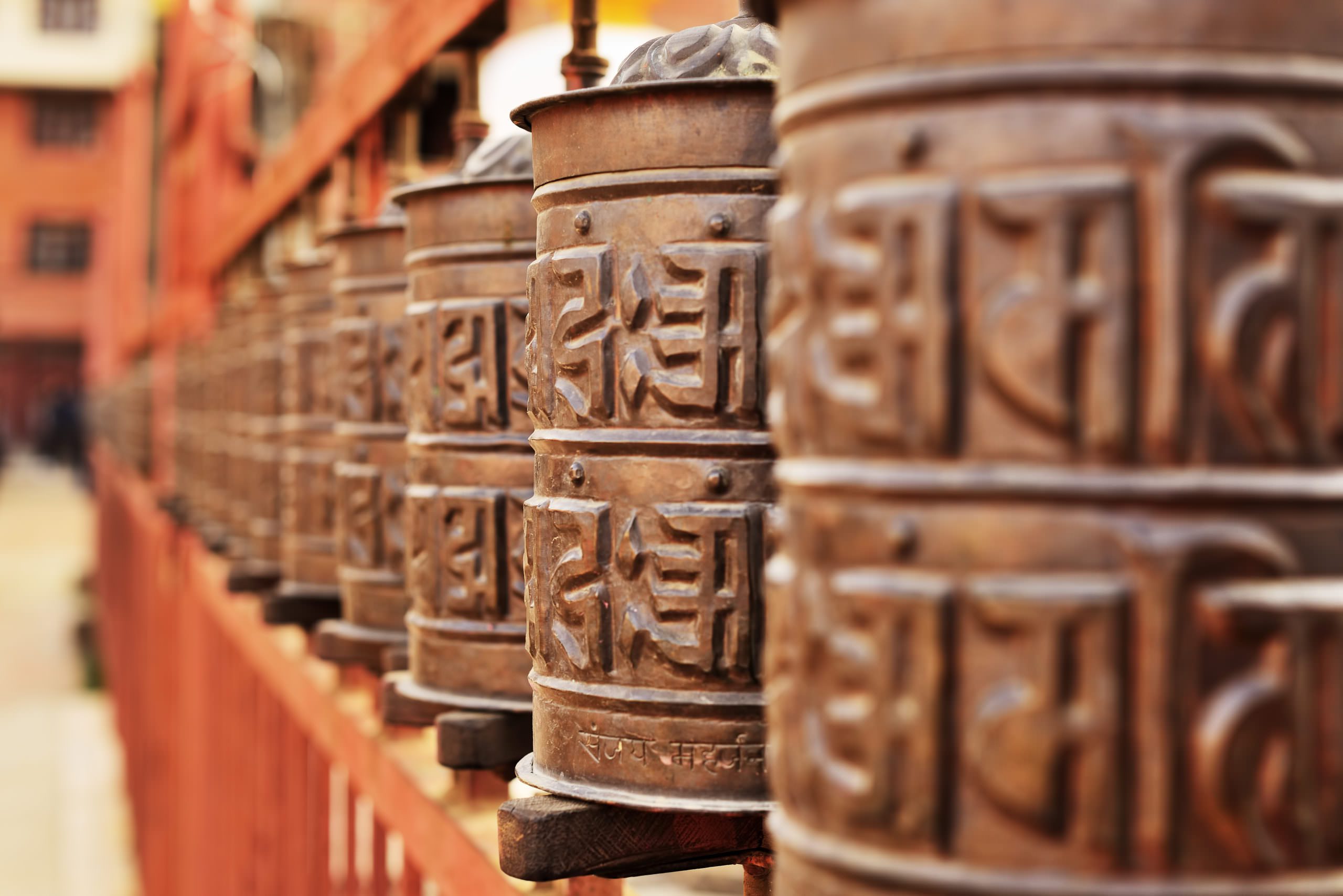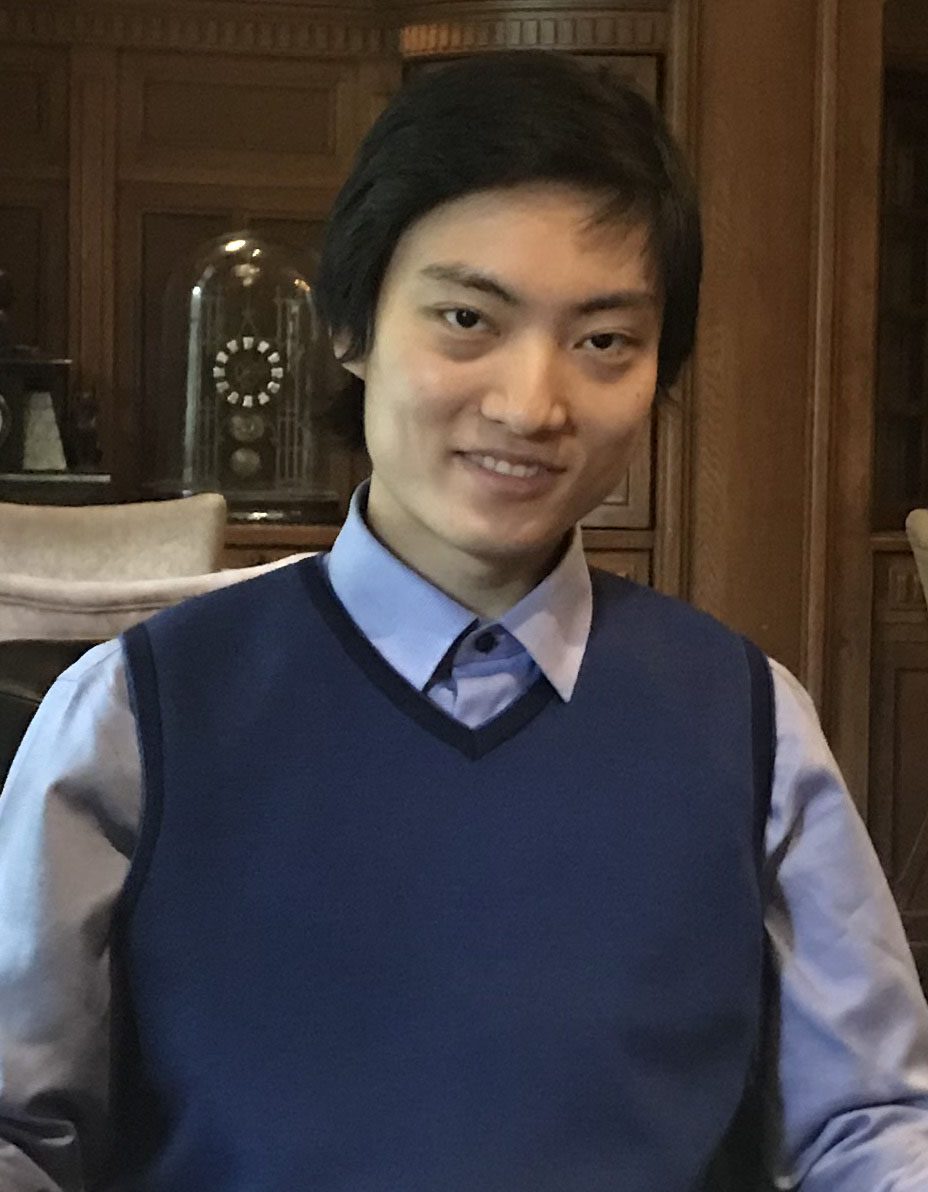
Hansong Li recently joined the Mittal Institute as a Graduate Student Associate for 2021-2022. He is a political scientist and intellectual historian in the Government Department at Harvard University. His research explores the languages and practices of interstate justice in South Asia, in comparison to East Asian and European traditions.
As a Graduate Student Associate, Hansong will conduct further research on South Asia. The Mittal Institute sat down with Hansong to learn more about his background, his research motivations, and career aspirations.

Mittal Institute: Hansong, welcome to the Mittal Institute! Tell our community a bit about your background. Where did you grow up, and where did you do your undergraduate and graduate work?
Hansong Li: I grew up in diverse regions of China, from the northwestern steppe to the southeastern coast, and for ten years lived in the historic quarters of Beijing, before leaving for the U.S. and Europe.
At the University of Chicago, I explored history, economics, and a ‘Great Books’ program called Fundamentals: Issues and Texts. There, although my focus was on Greco-Latin texts, I approached Sanskrit and Pali with the help of Wendy Doniger and the late Steven Collins. Struck by the trivarga nexus of dhárma, artha, and kāma, I was prompted to search for patterns of reconciling right, purpose, and longing in Greek and Chinese literatures, as well. Always interested in Islam in South and East Asia, I was initiated to the world of Mughal soulcraft and statecraft in Muzaffar Alam’s seminar, where I wrote on Sufism and the Mughals’ Rajput policy – how they resolved inter-jurisdictional conflicts by fitting multiple levels of claims into a larger legal framework.
Later, I studied in France and England. At Cambridge, I became interested in how profoundly the imagination of South Asian history, oceanography, and political economy changed the trajectory of modern global political thought. That strain of ideas also brought me to rethink colonialism and its aftermath, and increasingly to the present times.
Mittal Institute: Tell us a bit more about your experience with South Asian studies and what motivated you to join the Mittal Institute?
Hansong Li: Three main frontiers of South Asian studies have drawn me to the Mittal Institute. First, I am always interested in the economic development of South Asia, both from comparative macroeconomic lenses and through micro perspectives: the dynamics of entrepreneurship, micro-finance, and the informal economy. As an intellectual and economic historian, I find a kindred appreciation for Tarun Khanna’s advocacy for “contextual intelligence” in studying emerging markets, especially India and China. At Harvard, I have learned a great deal about socio-economic ideas, policies, and realities in South Asia from Amartya Sen, Emma Rothschild, Sunil Amrith, Arunabh Ghosh, and Sugata Bose. As a methodological synthesist, I believe that we learn the most by applying mixed methods—from natural, field, and RCT experiments, to traditional econometric and new machine learning tools, and to sociological and anthropological insights—to make sense of behaviours so complex in an area as varied as South Asia.
Political economy is inseparable from its geopolitical environment. More recently, my colleague Akshay Dixit and I organised a discussion on Kashmir with Melani Cammett and Ashutosh Varshney, generously funded by the Mittal Institute. Last year, I was glad to find my conversation with the Pratap Bhanu Mehta on Indian political thought and Sino-Indian relations circulating widely on Chinese social media and garnering positive response. It shows how rethinking each other’s pasts—or indeed our shared past—may help forge new visions at the present.
This past-present nexus brings me to Indology, especially Vedic literature. I am fortunate to have Michael Witzel as a generous mentor, whose vast knowledge and perennially inquisitive spirit are a constant source of inspiration. I also closely read the Bhagavad Gita with Francis Clooney, and benefited greatly from the stimulating, and at times soul searching round-table discussions he fostered at the Divinity School. Reading Sanskrit verses has been a great source of stimulation and consolation.
The Mittal Institute is unique, because it interweaves a tapestry through diverse threads of learning across disciplinary boundaries, knit together by none other than a shared intellectual passion for South Asia. It is a space for crisscrossing dialogues, from the political economy to the environment, and to languages and literatures. I look forward to joining likeminded colleagues in the years ahead!
Mittal Institute: You have a wide range of research interests – legal philosophy, maritime political theory, Tangutology, political economy, etc. Can you share with us a bit about your current focus?
Hansong Li: Currently, I am comparing and connecting sources of political and economic justice in South Asian, East Asian, and European philosophical traditions. I have always wondered: do these past ways of imagining interstate norms affect the shapes of our modern political lives, from economic development to international affairs? If so, at what levels and through what mechanisms? So far, I find that what may seem to be disparate ways of conceptualizing the ‘common’—especially how inter-community conflicts could and should be resolved by reference to an agreed standard—are in fact rooted in cognate languages that arise from shared forms of lives across connected, rather than isolated contexts. Once we regain consciousness of our interlinked ideas of what constitutes justice in broader horizons, we gain new tools to tackle the frictions in international governance that are allegedly rooted in ‘indivisible’ causes—distinct values, historical memories, normative visions, etc.—thus raise our civilizational dialogues a level higher and move our discourse on global justice a step further.
Mittal Institute: As a Graduate Student Associate at the Mittal Institute, you are working on Vedic and Sanskrit sources of social thought, and how this interfaces with modern day diplomacy. Can you expand a bit on this research?
Hansong Li: I always find it a curious phenomenon that historical imagination permeates modern state-building and worldmaking. This is so especially in South Asia, but also elsewhere – from Greece and Italy to China and Japan. In fact, a key source of institution-design, strategic development, and normative thinking is the selective and eclectic reimagination of past political lives.
One well-known example is the reappraisal of the Arthasastra, published by R. Shamasastry in the remarkable year 1909—when Gandhi unveiled the Hind Swaraj and Vinayak Damodar Savarkar published The Indian War of Independence—and cited in Nehru’s 1946 Discovery of India. In Nehru’s imagination, the Mauryan Empire’s extensive diplomatic relations with Seleucid Western & Central Asia and Ptolemaic Egypt were “rested on the solid foundation of mutual commercial interest.” Nehru pronounced Kautilya greater than Machiavelli both “in intellect and in action.” Himself steering the chariots of international coalitions from the interwar League against Imperialism to the post-WWII Bandung Conference, Nehru appreciates many counterintuitive virtues of Kautilya – subjugation of strategy to the common good, generosity to rival chiefs and ministers, art of reconciliation and realignment, and even the priority of the contemplative life over the pursuit of worldly purpose.
Another example is how a particular image of the Indian tradition informed earlier—and in my opinion, richer—articulations of the “Indo-Pacific” theory, which is today appropriated as a geopolitical slogan. This is the subject of my new article in Modern Intellectual History, “The ‘Indo-Pacific’: Intellectual Origins and International Visions in Global Contexts.” That story features figures such as Max Müller, Tarak Nath Das, Debiprasad Chattopadhyaya, and Benoy Kumar Sarkar.
At the Mittal Institute, I am seeking to understand how reimaginations of the past shape the way we do, or can perceive the public sphere: wealth and poverty, trade and development, interior of states and space between states. I am greatly inspired by the Vedas as a historical and normative source. Rather than chaotic ‘anarchy,’ Vedic tribes regulated interstate relations with their own language, e.g., by reference to mitráḥ, the deity of inter-people relations. The neuter form, mitrám becomes the word for ‘contract,’ and deviation from it triggers arbitration and righteous retribution. This is an even older layer of worldmaking knowledge, which I seek to bring into both ‘vertical’ genealogies and ‘horizontal’ dialogues, with later and modern ideas in South Asia, as well as other traditions of political thought and practice.
Mittal Institute: What are your future professional aspirations?
Hansong Li: It is not only a matter of ambition and aspiration, but also great fortune, that our professional and intellectual lives could perfectly coincide. Alongside academia, I have thoughts of pursuing policy-making at either the local or international level. Whichever is the case, I will continue to write for both scholars and the general public, to take part in this collaborative effort to rethink the possibilities of our own and collective lives.
